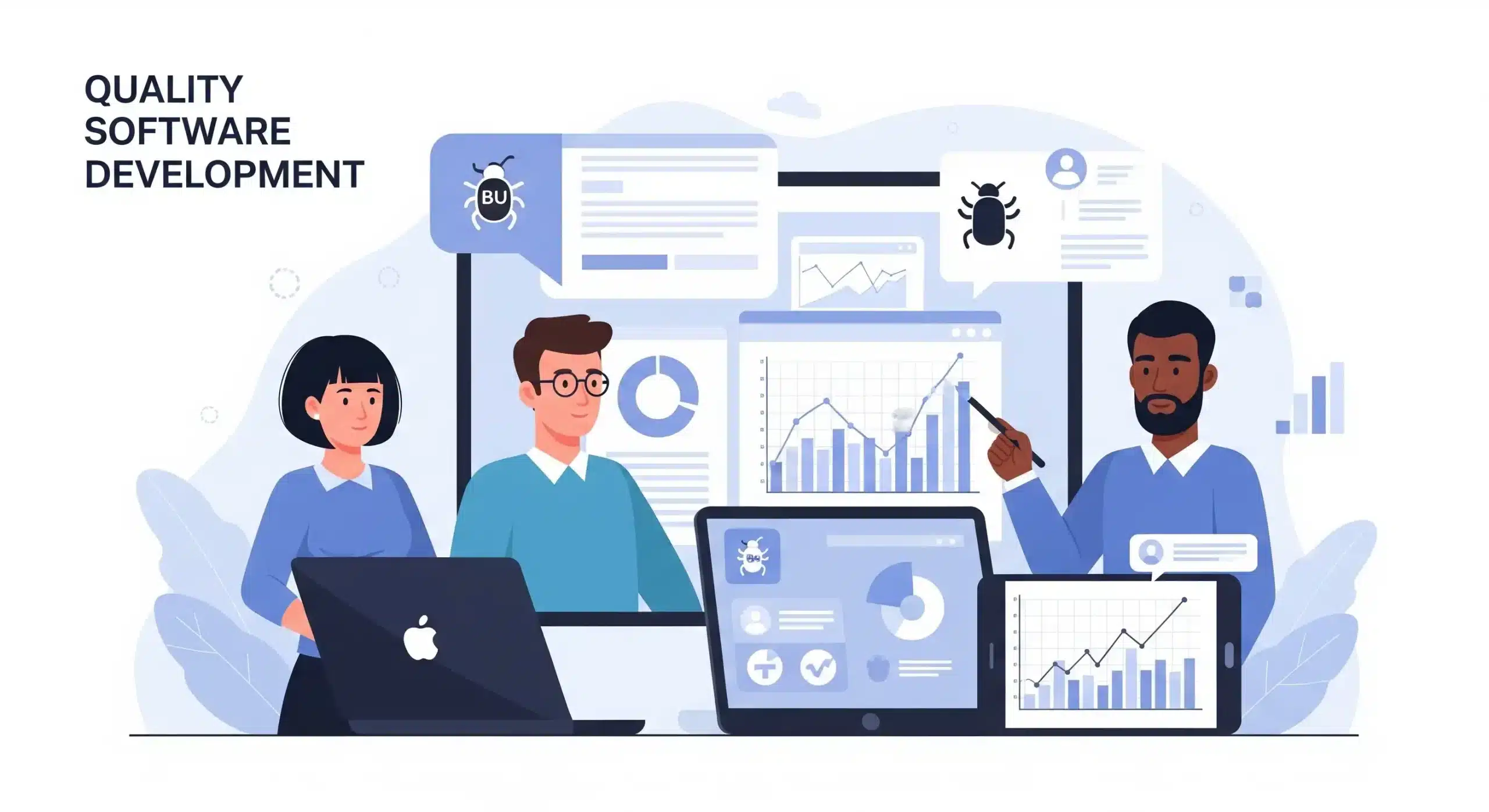Why Must Use Hybrid Mobile App Development to Develop Your Next App?

In the world of technology, hybrid app development has become more important than ever. Its popularity has increased primarily because it enables apps to be quickly developed, less expensively, and functionally across multiple platforms and operating systems without being completely rewritten.
Although hybrid mobile app development is not as popular as native, they do have several excellent benefits that are worth your attention.
What is mobile hybrid app development in light of this? We’ll go through hybrid application development in this article and why it can be the best option for you. Additionally, we’ll go over the many advantages of hybrid app developers and the ideal frameworks to employ.
What is Hybrid App Development?
The foundation of the hybrid app development process is the creation of an app utilizing a single project that can target all required platforms, including Android, iOS, Windows, etc.
Because hybrid software can have a single code base that can be utilized for various platforms, it is particularly enticing to developers. Hybrid app developers simply need to write the code once and then it can be reused when designing the app for any other target platform except for some parts of the programme.
The desire for hybrid apps is being driven by two undeniable facts:
- They’re way easier than native applications.
- The source code hybrid app development provides can be utilized to expand a business’ reach on multiple platforms, including the web.
Best Mobile Hybrid App Development Frameworks
Hybrid app frameworks are widely available today. You must select the framework that is most appropriate for your project because each one has advantages and disadvantages.
1. React Native
React Native is a cross-platform framework introduced by Facebook in 2015. With the help of this free and open-source Javascript framework, you can create cross-platform user interface elements using JSX that are afterward linked to native code and rendered in native views for Android and iOS.
The views are native components that connect with JavaScript-written logic via a bridge. A JavaScript thread is used to carry out the code.
2. Flutter
Google created this open-source hybrid app development framework Flutter by using its programming language – Dart. It can distribute apps to embedded devices in addition to mobile, web, and desktop platforms.
Despite being one of the more recent frameworks on this list, it has gained widespread developer adoption largely because of its competitive development speed and the flexibility to use a variety of widgets, some of which employ Google’s Material Design principles.
3. Apache Cordova
A cross-platform, open-source hybrid mobile development framework is Apache Cordova. You can make mobile apps using common web technologies, thanks to it. The WebView within the native application wrapper is where apps created with Apache Cordova run.
4. Ionic
Ionic is a well-known hybrid mobile app development framework that enables the creation of hybrid apps using HTML, CSS, and JavaScript. It is a very powerful and easy-to-use framework that supports AngularJS for making the apps look more attractive.
5. Xamarin
Microsoft developed the Xamarin platform for building mobile apps on top of their .NET framework and C# programming language. For iOS, Android, and Windows, you may create applications and use native APIs.
6. Unity
Although Unity is a hybrid application framework, creating games and other graphically demanding forms of entertainment is its primary application. It’s written in C#, a computer language. If you’re looking to develop an entertainment app, Unity is probably the best choice.
Advantages of Hybrid Mobile App Development
1. Easy to Develop Apps
Hybrid apps are often simpler to create than native apps. It’s because there’s no requirement for hybrid app developers to be familiar with the language used by each platform.
C# is another well-liked option for hybrid app development languages, which primarily focus on web technologies (the triad of HTML, CSS, and JavaScript).
2. Performance
Because they share memory and operate as a single process, hybrid apps are often smaller than native ones. A hybrid application may also be more responsive than one created using native technology, depending on how it is created.
3. Cross-Platform Compatibility
These apps are made to operate simultaneously across many platforms. Consequently, they don’t have the same constraints as codes are created especially for a certain platform. They are therefore perfect for companies that wish to reach all of their potential clients.
4. User Experience
With the ability to reuse parts and design features across platforms, hybrid applications can improve user experience. Because users will always experience the same appearance and feel, this might help an app’s brand image.
5. Cost-effective
When created by a single developer or a small team, native apps can become very expensive. Hybrid app development, on the other hand, is often more cost-effective. Businesses can create hybrid apps at a fraction of the expense of creating a native app by utilizing hybrid web technologies.
Hire the Top Hybrid App Developers Right Away
Cloudester can assist you in finding and hiring the best hybrid app developers for your company at half the price and twice the speed, which will make the decision-making process easier. Call us right away for additional information.









